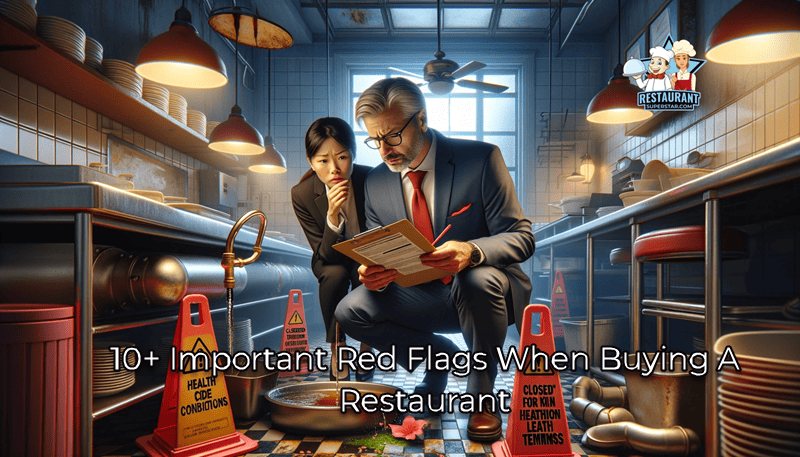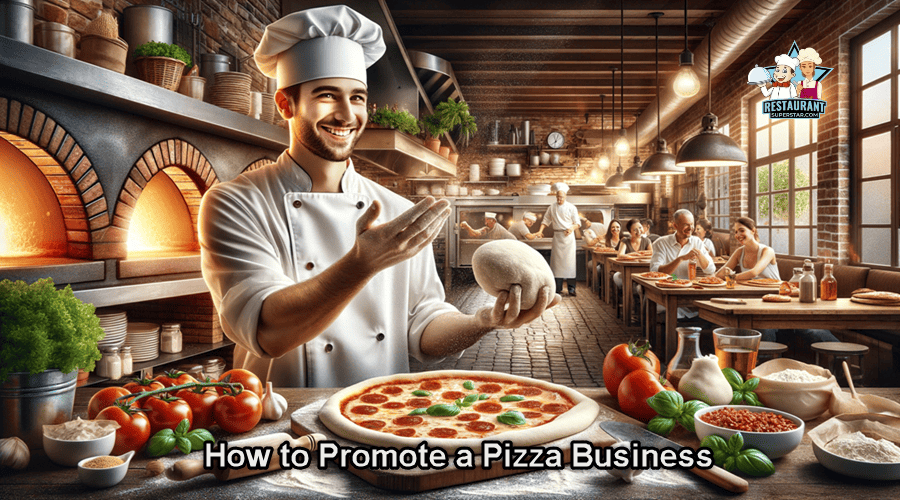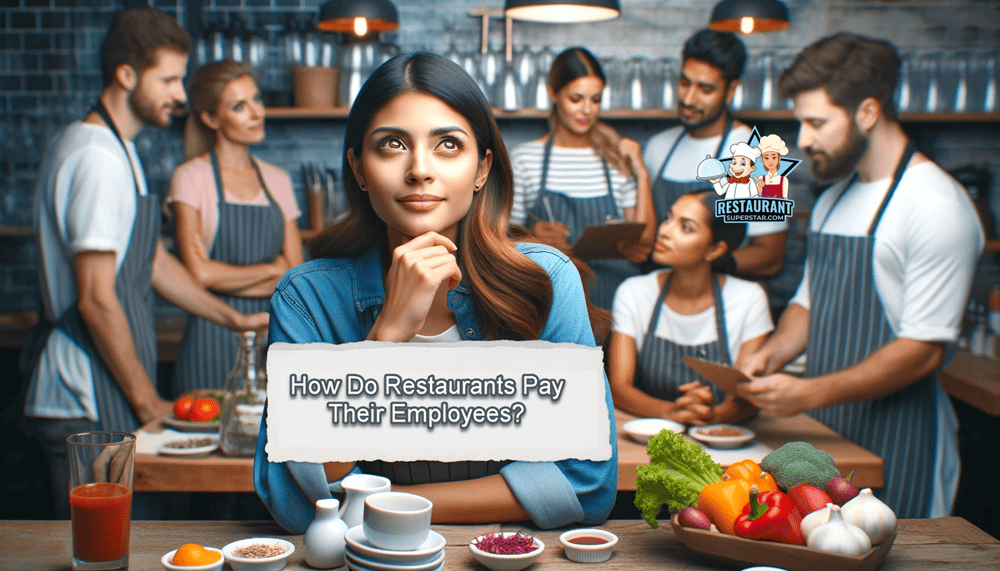Unlocking 19 Secrets of Restaurant Insurance: Latest!
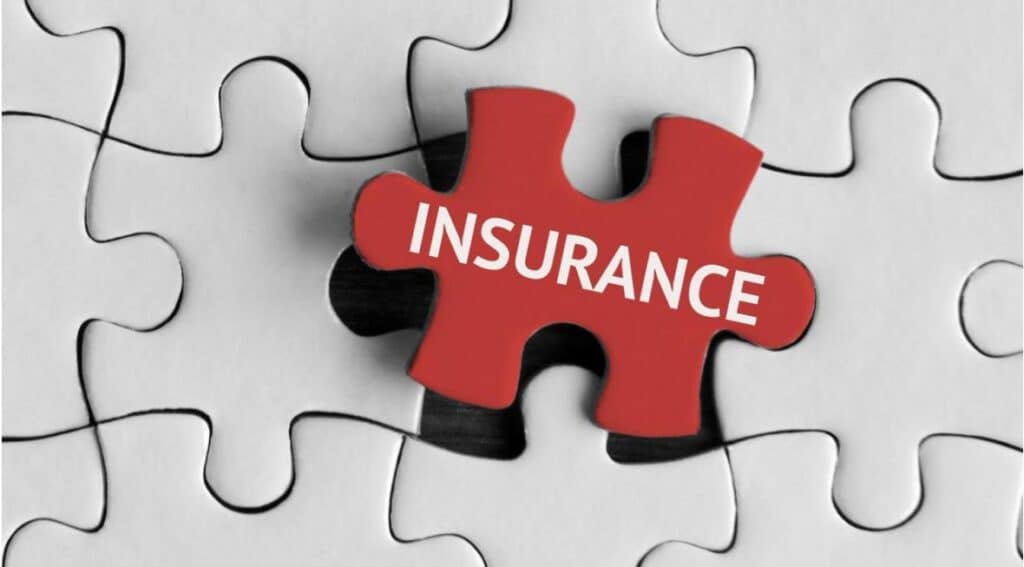
Hey, fellow restaurateurs,
Jeff here, all the way from sunny Florida. Having had my share of beachside café runs and downtown diners, I’ve learned over the years that life throws curveballs, especially in the restaurant business.
There’s been more than one occasion where I’ve found myself whispering, “Thank goodness for my restaurant insurance.”
Now, I get it. Chatting about insurance might not be as thrilling as discussing the latest culinary trends or the finest wines, but bear with me.
Knowing how to shield yourself and your eatery is crucial in this unpredictable world of culinary adventures.
With the right insurance, sleepless nights worrying about potential legal actions become a thing of the past.
Imagine a scenario—and trust me, it’s not rare—where a diner takes a tumble in your restaurant or a kitchen staff member ends up with a burn.
In these moments, a robust restaurant insurance plan becomes your safety net. I’ve had close calls; this insurance has kept my business and sanity intact.
And let’s not forget other unexpected mishaps: that fancy espresso machine breaking down in the middle of brunch rush or a delivery guy getting into a fender bender.
Accidents happen, and insurance ensures your revenue doesn’t take a hit from such unforeseen disruptions.
So, if you’re still on the fence about investing in restaurant insurance, take it from this old Florida hand: it’s not just a smart move; it’s essential. It’s like having a trusty sous chef by your side, ready to step in when things get heated.
What Is Restaurant Insurance?

What Is Restaurant Insurance? Restaurant Insurance is a Policy Package that Provides Financial Security for Your Company, Your Employees, and Your Clients in the Event of Fires, Accidents, Litigation, Income Loss, and Other Unforeseen Circumstances.
in Contrast to the Common Misconception, “Restaurant Insurance” Does Not Refer to a Single Insurance Policy. Instead, This Expression Refers to Collections of Policies That Shield Bars, Cafes, Restaurants, and Other Places That Provide Food Service from Dangers They Are Likely to Face. One Supplier Offers Restaurant Insurance, or You Can Put Together Your Package by Mixing Different Carriers’ Coverage Options.
Why Do I Need Restaurant Insurance?
For restaurants and other small enterprises, insurance is an essential running expense. Several factors necessitate insurance for restaurants:
- It covers and guards your cash. If a natural disaster disrupts business, you might be unable to pay out of pocket to repair fire damage to your restaurant or pay employees. So that you don’t have to spend all of your entire savings or claim bankruptcy to save your business, insurance can help you pay for repairs and make up for lost income.
- It aids in staff protection. For instance, workers’ compensation insurance pays staff healthcare bills when they sustain an injury. Additionally, it shields you from lawsuits.
- It safeguards your clients. Your insurance would pay the client’s medical costs, for instance, if they were injured on the property. Many unforeseen things can’t be controlled, even when great care is taken to reduce safety dangers at a restaurant.
How Much Does Restaurant Insurance Cost?
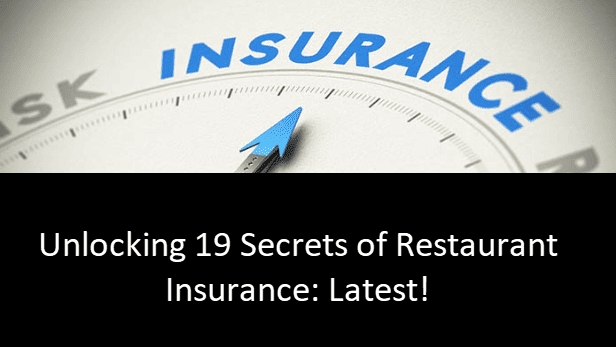
There is a vast range in the typical cost of restaurant insurance. The typical cost for a Business Owner’s Policy, workers’ compensation insurance, and restaurant liquor liability insurance are roughly $4,000.
An estimated price of general liability insurance is $900 per year, or $80 per month, with premiums ranging from $500 to $2,500 per year. The typical cost of commercial property liability insurance is between $500 and $2,500 annually, or around $740 per year and $60 per month.
Above all, the category of client you serve, the location you operate, the nature of your business, and your restaurant will affect how much you spend on restaurant insurance.
Knowing how much insurance for a restaurant costs for a restaurant is the first step to determining what kind of insurance might be appropriate for your business.
The overall cost of your restaurant insurance will rely significantly on your coverage requirements and the related policies you select because there is an extensive range in price for any particular policy accessible to you.
What Type of Insurance Are Necessary for Your Restaurant?
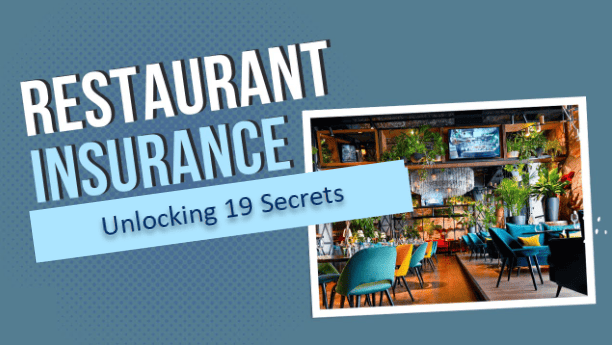
Today, a variety of insurance options are accessible. You may locate various insurance carriers offering a range of policies tailored to a restaurant’s unique requirements by conducting a fast online search. Making the best selections for your company may lead to anxiety. Here are a few insurance options to think about to make it simpler.
1 – General Liability
Your restaurant’s general liability insurance covers any damage you might do to third parties legally. In addition to causing physical harm, this harm may result in marketing harm and vandalism.
Who foots the bill for the client’s physical, medical, and emotional injuries if they trip on a freshly mopped floor and suffer a blow to the head? And who manages the compensation and legal charges? You will sort that out if you don’t have liability insurance.
2 – Product Liability
Insurance against product liability protects you from lawsuits for the goods you sell, such as those for contaminated food. Accidents on the restaurant grounds, such as slip-and-fall injuries, are covered by premise liability insurance.
Although it is not legally necessary, a company that engages in product-related activities should consider buying product liability insurance for manufacturing. Distributing
3 – Insurance for Machines and Tools
Tools and equipment insurance covers theft-related tool loss or unintentional tool damage. Breakdown or mechanical failure are not covered and is not an extended warranty.
There are limitations on coverage for these policies, as has been mentioned. Reviewing your policy to learn about these limitations is essential because tool theft from overnight vans is frequent.
4 – Damage To Premises Rented
Most small businesses rent space for their operations from a landlord. The landlord or property insurer may file a claim against the business for the cost of repairs if it unintentionally starts a fire that damages the structure.
The good news is that “Damage To Premises Rented To You” policies exist to protect most businesses from precisely these types of disputes. This protection is included in a standard procedure of general liability insurance.
5 – Business interruption insurance
When a business is disrupted by one of the insured perils, business interruption insurance helps replace the lost income and cover additional costs. A business owner’s insurance policy often includes business interruption or income coverage.
6 – Cyber Liability
Suppose you keep a client information database and make card purchases. Cyber liability insurance is probably a good idea if that’s the case. Data breaches have increased frequently as more consumers manage their transactions digitally. Purchase this insurance to protect the private information of your clients.
What Does Restaurant Insurance Cover?
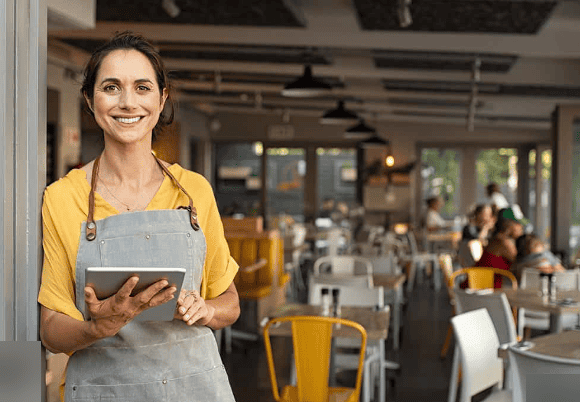
Thanks to insurance, a company may avoid financial ruin if a customer gets wounded while visiting the establishment.
The costs associated with foodborne illnesses, reputational harm, property damage, and copyright infringement litigation may all be covered by GL insurance. It covers any buildings, furniture, culinary equipment, and other real estate you own as a restaurant owner.
It also covers the legal liability of your business for any injury you may cause to a third party. Guarding against various thefts, including extortion, documentation falsification, and robbery.
Restaurant Liability Insurance for Small Business Owners
The management of a restaurant is challenging. You must manage the back office and worry about the staff, service, food quality, and customer experience. Taxes, insurance, consumer protection, profits, and regulations may take up much of your time and energy.
Does Restaurant Insurance Cover Liquor Sales?
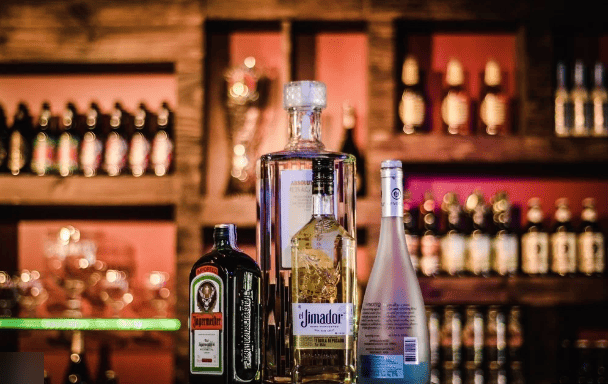
Yes. Suppose liquor is sold to an intoxicated individual who later injures others, ruins equipment, or damages property. In that case, liquor liability insurance covers court costs, compensation, and medical expenses.
Liquor liability insurance is more than just a safety net against the dangers of supplying alcoholic beverages. It is necessary for companies that sell or serve alcohol in most states.
You might require this policy to apply for a liquor license, depending on your location. It’s crucial in places with dram shop laws because they hold companies responsible for the behavior of drunk customers.
What Are the Risks of Running a Restaurant?
There are several ways that present and future restaurant owners may be able to protect themselves better, even though establishing a new business always carries some risk.
The following list identifies some of the most prevalent and expensive problems that could jeopardize a restaurant’s ability to remain in business.
- Inadequate cash flow
- insufficient marketing
- A lackluster reputation management strategy
- Food Preservation Certification and Licensing
- Foodborne Diseases
- Fire Prevention
- Workplace accidents
- Cybersecurity
- Burglaries.
- Destruction of property and break-Ins
- Falls and slips.
- Faulty locks and doors.
- Soiled bathrooms
- Frying fires
- Identity fraud
- Burns and cuts.
- Unfocused workers
- Nasty floors
Do Restaurants Need Liability Insurance?
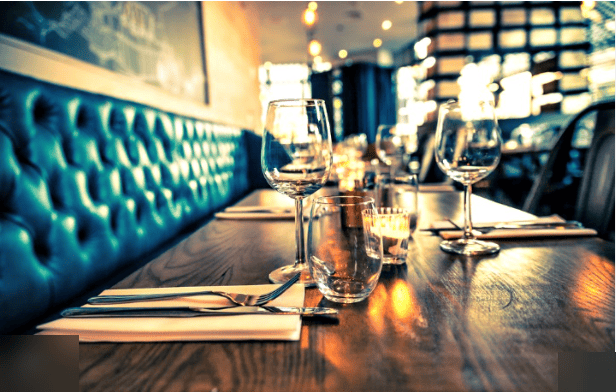
Yes. A restaurant must have general liability insurance to protect against claims for personal harm or property damage from mishaps like slips and falls.
The policy also includes product liability coverage, shielding your restaurant from lawsuits brought about by illnesses caused by contaminated food.
Suppose a document titled Product/Completed Operations Hazard Redefined is not attached. In that case, the food clients consume on your property might not be considered a “product” under your insurance policy.
This sponsorship guarantees that any claims relating to the food you sell, whether consumed on or away from your premises, will be covered under the products/completed operations coverage.
Who Needs Food Insurance?
The simple answer is that your ordinary Social, Domestic, and pleasure (SD&P) insurance will not cover you for such activities. Thus, it would help if you had Hire & Reward (H&R) insurance to cover your food delivery employment.
Your SD&P will protect you if you use your car for non-work-related purposes. Your SD&P insurance does not cover you if you deliver meals for money. Alternatively, you must have Hire & Reward coverage set up for the time you perform your delivery service.
Why Is Restaurant Business Insurance so Important?
The foundation of any long-lasting restaurant is business insurance. A pricey lawsuit from a customer or employee leads a business to close its doors faster than anything else. The proper commercial insurance cover is necessary for your restaurant for the following reasons.
- Kitchen mishaps occur frequently. Working in a kitchen isn’t a typical career. Therefore, most individuals don’t encounter open flames, temperamental equipment, and scurrying coworkers daily. The likelihood of a cooking accident is high. A sudden fire could destroy your specialized tools and workplace, requiring you to stop working until the problem is rectified. Restaurants need property damage insurance with business interruption coverage for precisely this reason.
- If one of your visitors is hurt while on your property, What happens if your best waiter or waitress is having a bad day and accidentally spills the entire pot of coffee on a customer? In the restaurant industry, an otherwise routine day can quickly go from routine to disastrous. This claim would be handled by a general liability policy that covers bodily injury to others. It. It might even reduce the chance of a significant lawsuit by promptly paying the injured party’s medical expenses.
- Employees may suffer harm at work Workers frequently transport dozens or hundreds of large goods between the dining room and the kitchen during busy shifts. It takes tremendous expertise to balance several orders on their arms, handle big bins of dishware, and heave enormous trays above their heads. What if one of your employees gets a backache while tidying up after an eight-person party? Theoretically, your company is liable for its harm. Workers’ compensation insurance can help with that.
What Is the Best Small Restaurant Insurance I Can Get?

Micro business insurance can appear difficult, filled with countless challenging offers. Overall, you’ll need general liability insurance and workers’ compensation insurance. Still, you’ll have to research what’s ideal for your business.
1 – General Liability
As you would have assumed, general liability insurance offers comprehensive coverage. Most policies defend your company from libel, slander lawsuits, and claims for property damage and bodily injury.
Commercial Property
Commercial property insurance, often known as hazard insurance or business property insurance, aids in the replacement of lost or damaged commercial property by your company. This can include real estate (such as an office building), furnishings, equipment, stock, or other movable property your business owns.
2 – Business Income
If your company sustains property damage from a fire, storm, or theft, business income or interruption insurance will pay for lost income.
3 – Basic insurance for restaurants
This insurance functions as an addition to your current insurance plan. If you foresee that your standard insurance coverage won’t cover a significant loss or liability, it’s a wise option.
4 – Business Owners Policy (BOP)
A small business insurance package, a business owner’s policy (BOP), is available. BOPs include general liability, commercial property, business income, and workers’ compensation. The precise contents vary according to the needs of the business and your insurance provider’s options.
5 – Workers’ Compensation
You can be liable for their costs and compensation if one of your employees gets hurt. However, if you have workers’ compensation insurance, your insurer pays for that instead.
The cost of medical care, lost earnings, disability, and workers’ compensation insurance may even cover funeral expenses. Except for Texas, every state requires firms with non-owner staff to have this type of insurance. In four states, getting your insurance directly from the government rather than a private company is mandatory.
Other Coverages Restaurants Might Need
Commercial Auto:
Suppose a staff member is involved in an accident while using a work vehicle, such as a delivery van, food truck, or construction vehicle. In that case, commercial auto insurance will protect your company.
For More Tips: Watch – What is the Best Insurance for your Restaurant?
Frequently Asked Questions
What Insurance Should I Get for My Restaurant?
Business property insurance, which can cover the actual structure and just about everything inside, is something restaurant owners should think about. Liability insurance offers protection if your company is responsible for someone else’s injuries or damage to their property. Almost every state needs workers’ compensation insurance if you have staff.
What Are the 3 Types of Insurance That Hospitality Businesses Need?
Businesses in the hospitality industry are more demanding to acquire insurance coverage that addresses the changing risk exposures of the business. Below are the three types of insurance that hospitality businesses need
- Insurance for General Liability
- Personal Accident Protection
- Insurance for Commercial Vehicles
What Is Restaurant Liability?
Medical expenses and other damages for problems relating to patron injuries on the restaurant’s property are covered by general liability insurance. Restaurants may be busy places, and without the proper insurance, a dropped bar stool or a slippery floor might lead to costly litigation.
Why Is Insurance Necessary for a Restaurant Operation?
Restaurant public liability insurance can protect your company from claims of personal injury or property damage. In the sad event that visitors—customers, suppliers, or other third parties—are hurt. At the same time, on your property, it will assist you in protecting them.
What Is Hospitality Insurance?
Hotels, restaurants, and businesses that receive customers for paid meals, amusement, and overnight lodgings are covered by hospitality business insurance. Protection against liability and insurance funds for loss or damage is included in the coverage.
What Insurance Do I Need to Run a Pub?
You’ll also need a premises license, which allows you to operate other regulated activities from your location, such as providing public entertainment and selling hot food and beverages after 5 o’clock. One must be a DPS or have one appointed to apply for a liquor license for a business location.
What Type of Insurance Does a Cafe Need?
Nearly all states mandate workers’ compensation for businesses like coffee shops that employ people. Staff members with work-related injuries can use this coverage to assist in covering their medical costs and missed income. Most policies include employer’s liability insurance, which defends cafe owners in court actions involving workplace accidents.
What Insurance Do I Need for Takeaway?
Public liability insurance protects you against legal action by an injured customer who believes you are responsible for their accident on your premises. Conversely, product liability protects you if a client sues you for over-delivery of meals that caused their illness or other harm.
What Is Food Contamination Coverage?
A company owner can recover the costs of ruined or tainted food by purchasing food contamination insurance. The coverage accounts for temperature and humidity variations and broken equipment when food degrades.
Conclusion
To wrap up, restaurant insurance refers to a collection of insurance policies that protect against the financial risks that restaurants and other food service businesses encounter.
These packages could include guidelines for general liability, business interruption, commercial property, workers’ compensation, commercial vehicle, liquor liability, and equipment breakdown.
Every profitable restaurant needs insurance, which is a necessary component. It lets you pay a monthly premium rather than make preparations if an accident hurts your company. Additionally, this insurance will assist you in handling these issues as they come up so that you may keep managing your firm.
When choosing a policy, be cautious only to purchase what you need, consider your deductible, and inquire about BOP package savings. Even if you hope you never need your restaurant insurance, having it will provide peace of mind, knowing that your company, employees, and clients will be safeguarded in an accident.
Jeff Smith is a Restaurant Consultant with over 20 years of hospitality experience, ranging from server to owner and general manager. He focuses on Restaurant POS technology as well as restaurant marketing. Check out our world-famous restaurant resources page for a comprehensive offering of hand-picked resources and tools to help your business. You can also check out some of our other restaurant business articles.

